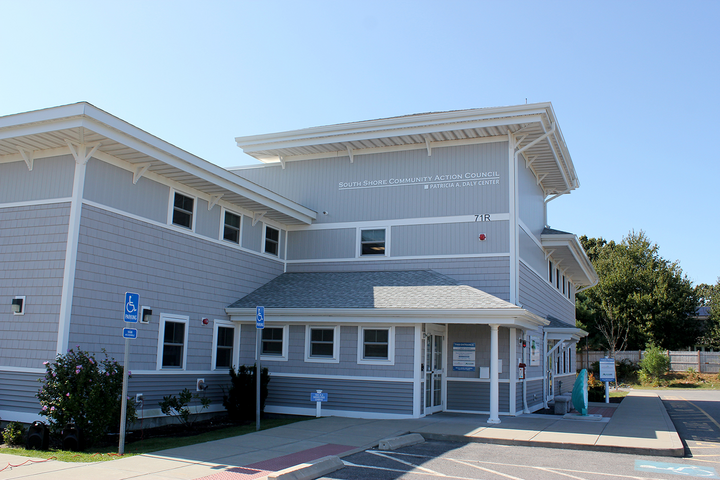This nonprofit assists over 25,000 low-income individuals of all ages each year from the South Shore, Cape Cod and the Islands. Stop & Shop has supported South Shore Community Action Council through the Bloomin’ 4 Good and Community Bag Programs.
Tell us about South Shore Community Action Council.
South Shore Community Action Council (SSCAC) was founded in 1965 under the auspices of the Economic Opportunity Act and President Johnson’s War on Poverty. SSCAC was initially located in Scituate but later moved to Plymouth, Massachusetts.
We are one of over a thousand community action agencies nationwide, with 23 in Massachusetts. We focus on working with our communities to eliminate poverty by creating opportunities to alleviate the negative impacts at the local level. Over the years, we’ve grown and now serve about 80 cities, towns and communities throughout Southeastern Massachusetts. We have an enormous footprint.
The South Shore Community Action Council’s mission is to help low-income people and families gain skills and access support that will enable them to achieve greater economic self-sufficiency and a better quality of life.
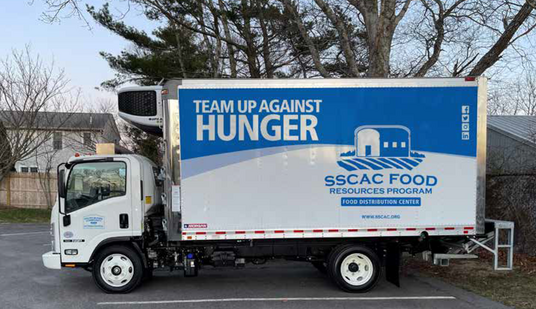
What services do you provide to the community?
Each year we serve 26,000-28,000 people of all ages through our many programs. Our most extensive program is the fuel assistance program. This serves about 12,000 households per year. It is a vital program, with utility costs through the roof in the dead of winter. For eligible households, we can help pay for their home heating. The vast majority of folks benefitting from this program are older adults on a fixed income.
Then, the South Shore Community Action Council has several childcare centers. We provide Head Start and Early Head Start at six centers before and after school. In total, we serve about 500 kids each year through those centers. Family support is also provided to connect people with community resources. We take a whole family approach when helping.
We are about the community, in the community, partner with the community and are supported by the community.
After that, we have a transportation program with a fleet of about 35 16-passenger handicap-accessible vehicles. These are heavily used to transport low-income elderly and disabled individuals to and from their homes for doctor and dentist appointments and adult day programs, for example. It is about getting people where they need to go safely and with dignity.
The SSCAC’s food resources program has many intersections with Stop and Shop. This program runs like a food bank. We collect food donations throughout the community. School groups, organizations, businesses and anyone interested in helping alleviate hunger and food insecurity can donate. Then, several times throughout the week, food pantries, schools, soup kitchens, shelters and low-income housing developments come to us and collect the food to feed their constituents. Collecting this food makes it much easier, less time-consuming and labor-intensive for these other organizations. They can focus on meeting the need of their communities.
We are about the community, in the community, partner with the community and are supported by the community. We have over a hundred food donors yearly, including Stop and Shop. We supply 45 to 50 organizations with food, meaning we distribute about a half million pounds each year. The communities almost wholly fund this program through food and monetary support. It’s a great example of community action.
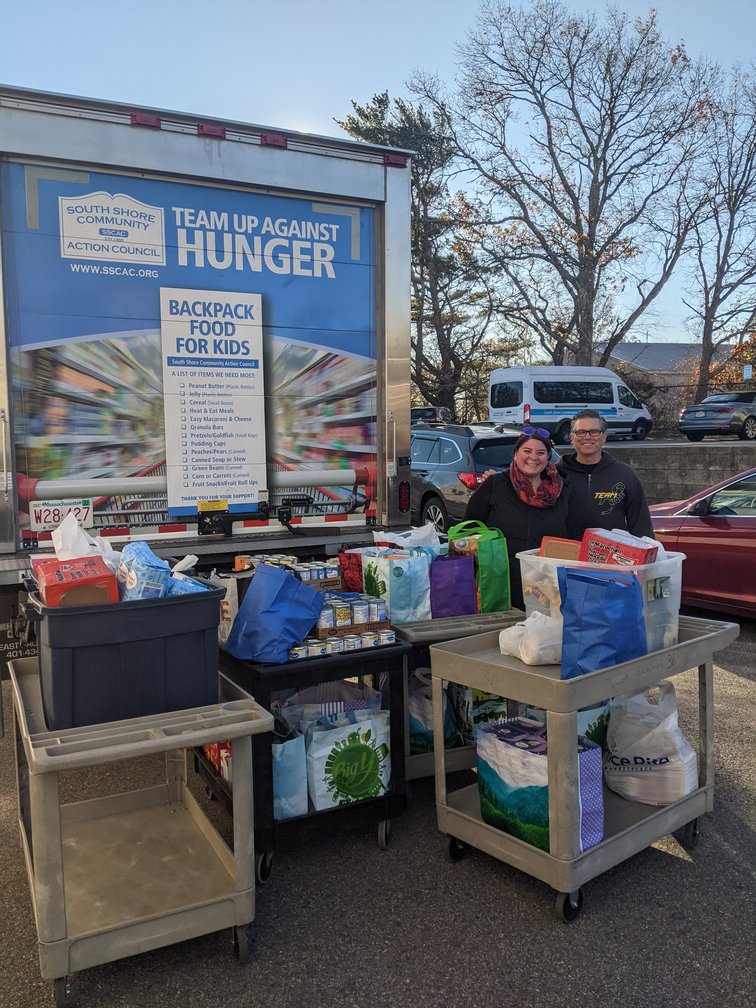
What sets you apart from other nonprofits in your community?
SSCAC is a multi-service agency. Through partnerships and collaborations with other organizations in our community, we can also find help for a client if a particular service we don’t cover is needed.
Our team is outstanding at connecting and coordinating with other organizations in the community. For example, for home heating assistance, we will connect them with additional resources out in the community. Then, in the process of that referral, if we discover they need hunger relief, we’ll connect them with our food resources program. It’s one of the things that Community Action does well.
Another thing that makes SSCAC unique is that we do a community needs assessment and strategic plan every three years. SSCAC is responsive to needs in the community because there’s no point in providing a service if nobody needs it.
Our team is outstanding at connecting and coordinating with other organizations in the community.
We do a systematic process every three years. We are collecting information from low-income households and gathering research to ensure that we are analyzing and thinking about the priority issues for low-income individuals and families in our communities. Then, as we deliver programs, we can ensure they are geared toward what people in our communities need.
For example, we’re in the throes of doing our assessment right now. The housing crisis, food security, and transportation are top needs coming up loud and clear. These are the top needs we identify when we do these assessments, and different times produce different results. When I first conducted the evaluation at the height of the recession in 2009 and 2010, unemployment, job searching, and job training were priorities from that needs assessment.
The findings of our community needs assessment help to provide a new field of knowledge for our strategic planning. This allows us to consider how to start incorporating new ideas around social determinants of health to better serve our clients.
Tell us a story that illustrates the good work of your organization.
Food insecurity is a significant component of our support, and ensuring children in our communities are fed is a priority. We strategically partner with schools, Boys and Girls Clubs and summer camps to target food distribution.
SSCAC has nine schools we work with in Plymouth and Middleborough, Massachusetts, to ensure they have food that can be sent home with kids. This is our Backpack Program. The school nurses and staff will work with the PTA to identify kids experiencing food insecurity at home. The schools can see that students get breakfast and lunch during weekdays. But once they’re home, some kids might not have access to food, especially during weekends or school vacations. This is when the Backpack Program makes a difference. It is about ensuring kids have enough food while away from school. When going through our donations, volunteers will set aside child-friendly foods like loaves of bread, peanut butter and jelly, and some quick heat-and-eat meals that kids can pop in the microwave on their own.
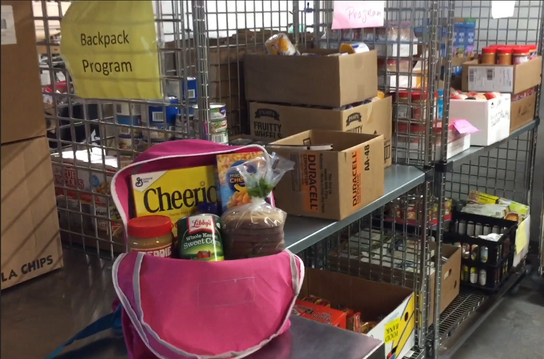
We know that kids tend to have a higher risk of negative health, developmental or mental health outcomes because of hunger and food insecurity. The Backpack Program helps ensure all children are being well fed.
What is your most outstanding achievement or contribution to the community?
I am particularly proud of how we handled our food distribution during the early days of the pandemic, with all the food shortages and folks being concerned about maintaining social distancing.
The South Shore Community Action Council partnered with the Plymouth Massachusetts Public Schools to assemble a team of volunteers that managed a donated box truck for our food donations to continue. We parked that box truck outside of our center, and our staff would wheel food in and out. The truck was staffed with volunteers who would park their cars in front of it. Then anytime somebody came to donate, they would run out, hoist up the back of the truck, and run back to their car. People could drop off the food and then drive away, and the volunteer would run back out and shut the door. Our dedicated volunteers would return to their car and wait for the next person to arrive.
It is crazy to imagine now. But we were able to keep the food coming in and back out to those in need. People were incredibly responsive and wanted to do so much to help. They knew many people in the community were struggling with food.
What do you want people to know about your organization?
The long-term after-effects of the pandemic have been challenging for people. Many of our partnerships are still in the process of rebuilding. The cost of food, utilities, gas and housing, so many basic needs are so expensive nowadays.
Sometimes we don’t realize the impacts of the pandemic are ongoing. If anything, we’re seeing more need now than in those first few months of the pandemic. The various partners we supply food to provide us with data they record each month regarding how many first-time recipients they receive. From 2021 to 2022, we’ve seen a 289% increase in first-time visits for food assistance.
The beautiful thing about Community Action is that everybody can do something. Everybody can get involved and make a difference. Even if you feel like your contribution is too small, it has a huge impact when you get all kinds of people working together. I always encourage people to do what they can, and it’ll make a difference.
How are you using the funds raised from the Stop & Shop Bloomin’ 4 Good and Community Bag Programs?
The Stop & Shop Bloomin’ 4 Good Program’s funds help keep our food resources program running.
This program runs with one and a half staff. We only have a little funding to operate it, so we rely on our volunteers and our communities to help keep everything running. This financial assistance helps us ensure that food gets out to older folks through the Councils on Aging and our schools for our Backpack Program. The funds earned in the Bloomin’ 4 Good Program assist with initiatives in our food resources programs.
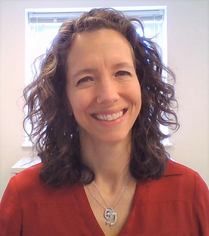
Published March 8, 2023.
